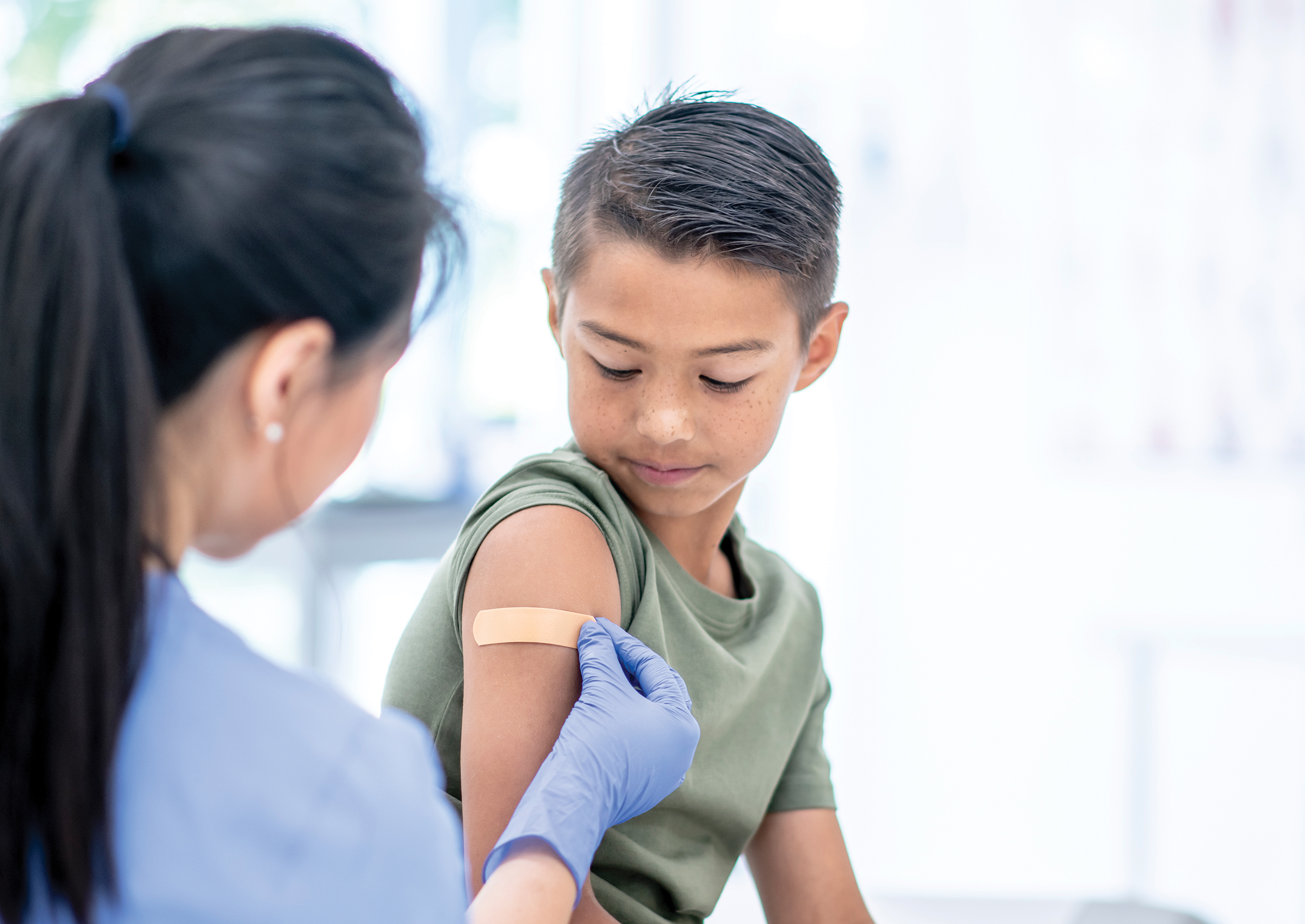Winter is often associated with an increase in illness as cold weather and indoor gatherings make it easier for viruses to spread. Immunizations are a critical part of protecting children’s health, helping to build resilience and immunity against winter illnesses. Here are the top winter immunizations recommended for children, along with why they’re essential for keeping kids healthy during the colder months.
1. Influenza (Flu) Vaccine
The flu vaccine is one of the most important immunizations for children during winter, as flu season peaks in colder months:
- Protects Against Multiple Flu Strains: Each year, the flu vaccine is updated to protect against the strains most likely to spread.
- Reduces Severity of Illness: Even if a vaccinated child gets the flu, symptoms are generally milder and less likely to lead to complications.
- Protects Vulnerable Family Members: Vaccinating children helps prevent the spread of flu to more vulnerable family members, like infants and older adults.
Getting the flu vaccine early in the season provides the best protection throughout winter.
2. COVID-19 Vaccine
With COVID-19 still circulating, the COVID-19 vaccine is crucial for preventing severe illness in children:
- Reduces Risk of Severe Symptoms: Vaccinated children are less likely to experience severe symptoms or complications if they contract COVID-19.
- Helps Prevent School and Activity Disruptions: Vaccination can reduce the likelihood of infection and help children avoid missed school days.
- Offers Protection Against Variants: Updated COVID-19 vaccines address recent variants, providing broader protection.
Ensuring children are up-to-date with their COVID-19 vaccinations adds an important layer of protection during the winter season.
3. Pneumococcal Vaccine
Pneumococcal disease can cause severe respiratory infections, especially during winter, making this vaccine vital:
- Prevents Serious Infections: The pneumococcal vaccine protects against infections like pneumonia, which can become serious, particularly for younger children.
- Reduces Risk of Ear Infections: Pneumococcal bacteria are also linked to ear infections, which are common in winter.
- Protection for At-Risk Groups: Children with certain health conditions, like asthma, may be more vulnerable to pneumococcal disease, making this vaccine especially important.
The pneumococcal vaccine is typically given in early childhood but may also be recommended for older children in certain cases.
4. Pertussis (Whooping Cough) Vaccine
Pertussis, or whooping cough, is a highly contagious respiratory disease that can be severe in young children:
- Provides Long-Lasting Protection: The DTaP vaccine, which covers pertussis, diphtheria, and tetanus, is part of the routine vaccination schedule for children.
- Reduces Risk of Severe Coughing Episodes: Pertussis causes severe coughing fits that can be dangerous for infants and young children.
- Protects Against Spread in Community: Vaccination reduces the spread of pertussis within families and communities.
Ensuring children are up-to-date on the pertussis vaccine protects them and those around them from this highly contagious disease.
5. MMR (Measles, Mumps, and Rubella) Vaccine
While not specific to winter, ensuring immunity against measles, mumps, and rubella is essential during any season:
- Prevents Highly Contagious Diseases: Measles and mumps are highly contagious and can lead to severe complications.
- Supports Herd Immunity: High vaccination rates prevent outbreaks, protecting children and vulnerable individuals.
- Maintains Immunity During Travel and Gatherings: Winter often brings family gatherings and travel, where exposure to new people could increase the risk of transmission.
The MMR vaccine is typically given in early childhood, but ensuring all doses are up-to-date is key for protection.
6. Varicella (Chickenpox) Vaccine
Chickenpox, while often mild, can cause complications and spreads easily in close-contact settings like schools:
- Prevents Itchy, Uncomfortable Rash: The vaccine helps prevent the characteristic itchy rash and fever associated with chickenpox.
- Reduces Risk of Complications: In some cases, chickenpox can lead to complications like bacterial infections and pneumonia.
- Decreases Outbreak Risk in Schools: Chickenpox spreads rapidly among children, so vaccination helps prevent outbreaks.
Keeping children protected from chickenpox can help avoid missed school days and prevent the spread to others.
7. Hepatitis A and B Vaccines
Hepatitis A and B vaccines provide essential protection, as these diseases can have serious health consequences:
- Protects Against Liver Disease: Both hepatitis A and B can cause liver disease, with hepatitis B potentially leading to long-term health issues.
- Important for Family Gatherings and Travel: Holidays often mean larger gatherings and, potentially, travel to areas with higher hepatitis exposure risks.
- Included in Routine Vaccination: Both vaccines are part of the standard immunization schedule, but ensuring completion is key for full protection.
Ensuring children are vaccinated against hepatitis provides long-lasting health benefits.
Final Thoughts
Winter is a time when children are more vulnerable to respiratory and contagious illnesses, making immunization a vital part of their winter wellness routine. Keeping kids up-to-date on these essential vaccines helps build their immunity, reduce the risk of severe illness, and protect those around them. By prioritizing these immunizations, you can help ensure a safe and healthy winter season for your children and your family.

